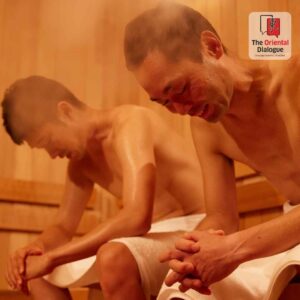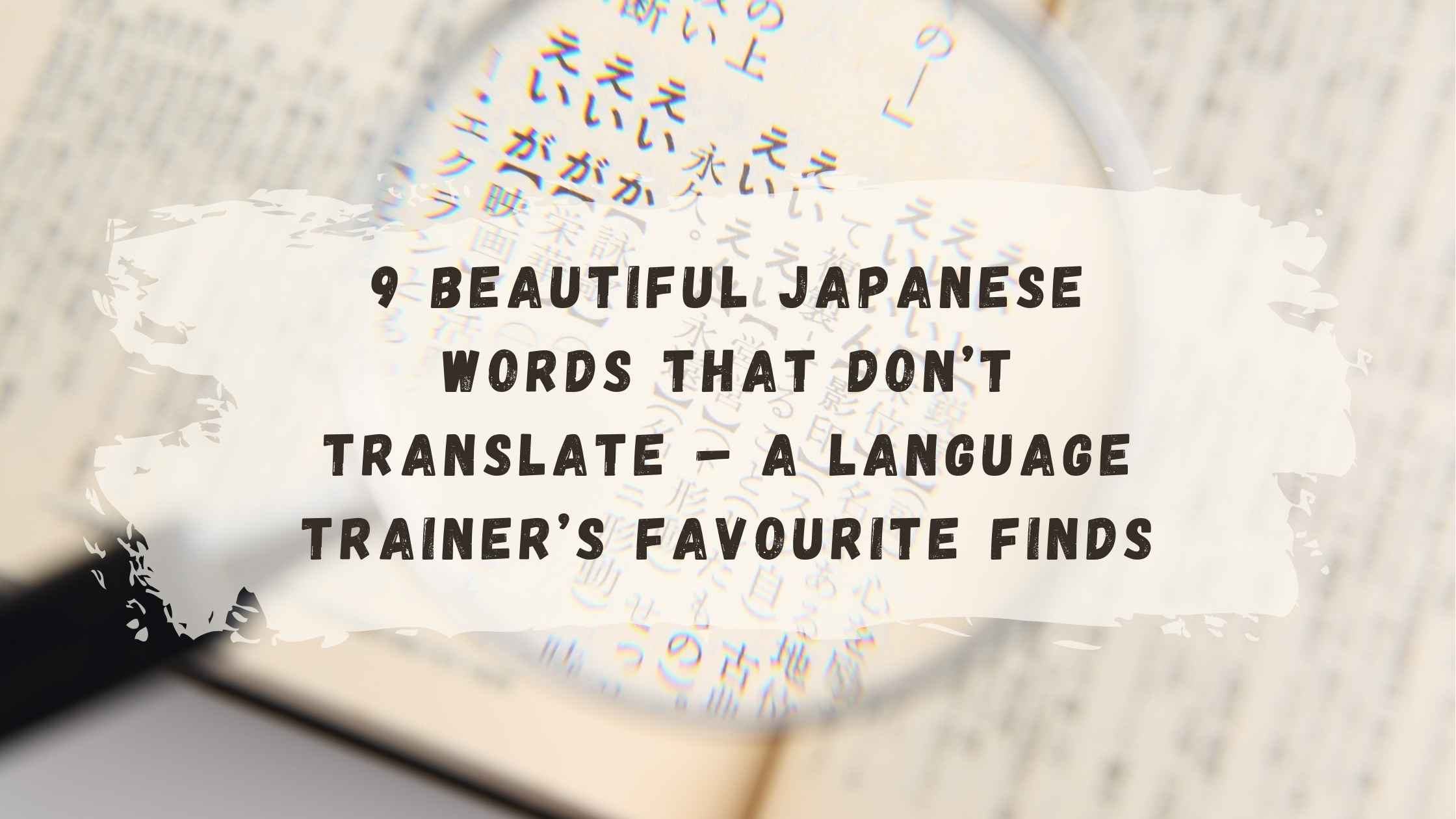こんにちは!
I’m a Japanese language trainer at The Oriental Dialogue, and one of the most delightful moments in my teaching journey is introducing students to Japanese words that simply have no equivalent in English—or any other language, for that matter.
These untranslatable words are not just vocabulary. They are windows into Japanese culture, history, humour, and emotion. Each word carries a story and a sentiment that’s beautifully unique to Japan. Today, I want to share 9 such words that have wowed my students and even inspired a few giggles or thoughtful pauses in class.
1. Kuchisabishii (口寂しい)
Literal meaning: “Lonely mouth”
What it really means: That feeling when you’re not hungry, but you want to snack.
Ever opened the fridge not because you were hungry, but just… because? That’s kuchisabishii. It’s what I call the popcorn-at-the-movies syndrome. A word so relatable, you’ll use it before you even remember how to write it in Hiragana.
 2. Tsundoku (積ん読)
2. Tsundoku (積ん読)
Literal meaning: “Reading pile”
Real meaning: Buying books and letting them pile up without reading them.
Oh, the number of students who laugh when I mention this! If you’ve got a mini library at home and a growing ‘to-read’ list, you, my friend, are a tsundoku master. No shame—just a sign of a curious mind.
3. Komorebi (木漏れ日)
Literal meaning: “Sunlight leaking through trees”
This one always brings a smile. There’s no better word for that magical moment when the sun filters through leaves, creating dancing light on the ground. Nature-lovers in our Japanese batches often mention how “komorebi” makes them feel instantly peaceful.
4. Betsubara (別腹)
Literal meaning: “Separate stomach”
No matter how full you are, there’s always space for dessert, right? That’s betsubara. This word is a hit when we talk about Japanese food culture—and yes, I have one too. Especially for mochi!
5. Irusu (居留守)
Literal meaning: “Staying at home”
But the real meaning? Pretending not to be home when someone knocks! Whether it’s a salesman or a nosy neighbour, we’ve all done an irusu at some point. One of those words that’s equal parts funny and useful.
6. Shinrinyoku (森林浴)
Literal meaning: “Forest bathing”
In India, we talk about going for a ‘nature walk’ or trekking. But in Japan, they turned that into a wellness movement! Shinrinyoku is the act of immersing yourself in the calm of a forest, and it’s actually used for mental and physical healing. It’s therapeutic just saying the word!
 7. Totonou (整う)
7. Totonou (整う)
Meaning: The perfect state of well-being after a sauna or hot spring
When you’ve gone through a hot soak, a cold dip, and fresh air… that sense of calm and clarity is “totonou.” In Japan, people chase this feeling through onsens and saunas, and it’s even become a pop culture trend with manga and dramas!
8. Batankyu (バタンキュー)
Onomatopoeia: The sound of collapsing into bed and immediately falling asleep
This one always gets a laugh in class. Batankyu combines “batan” (thud) and “kyu” (the silence after) — perfect for describing that sweet moment when your body gives up and you just crash. I call it the “weekday bedtime word.”
9. Nurumayu (ぬるま湯)
Literal meaning: “Lukewarm water”
Culturally, it means being too comfortable—so much so that you stop striving. It’s a soft warning word, reminding us not to get stuck in situations that feel ‘just fine’. A life lesson, packed in one warm-sounding word.
Why These Words Matter in Learning Japanese
These gems are what make learning Japanese an adventure. At The Oriental Dialogue, we don’t just teach you the language; we immerse you in the culture, humour, philosophy, and daily life of Japan. Words like these bring emotion and relatability into our lessons—and our students love how they connect language with real-world feelings.
Want to experience more of these “a-ha!” language moments?
Join our Japanese batches at The Oriental Dialogue.
Whether you’re learning for fun, travel, anime, or a career opportunity, we make it unforgettable.
📍 Join online or in-person classes at our Pune centre
🌐 www.theorientaldialogue.com




